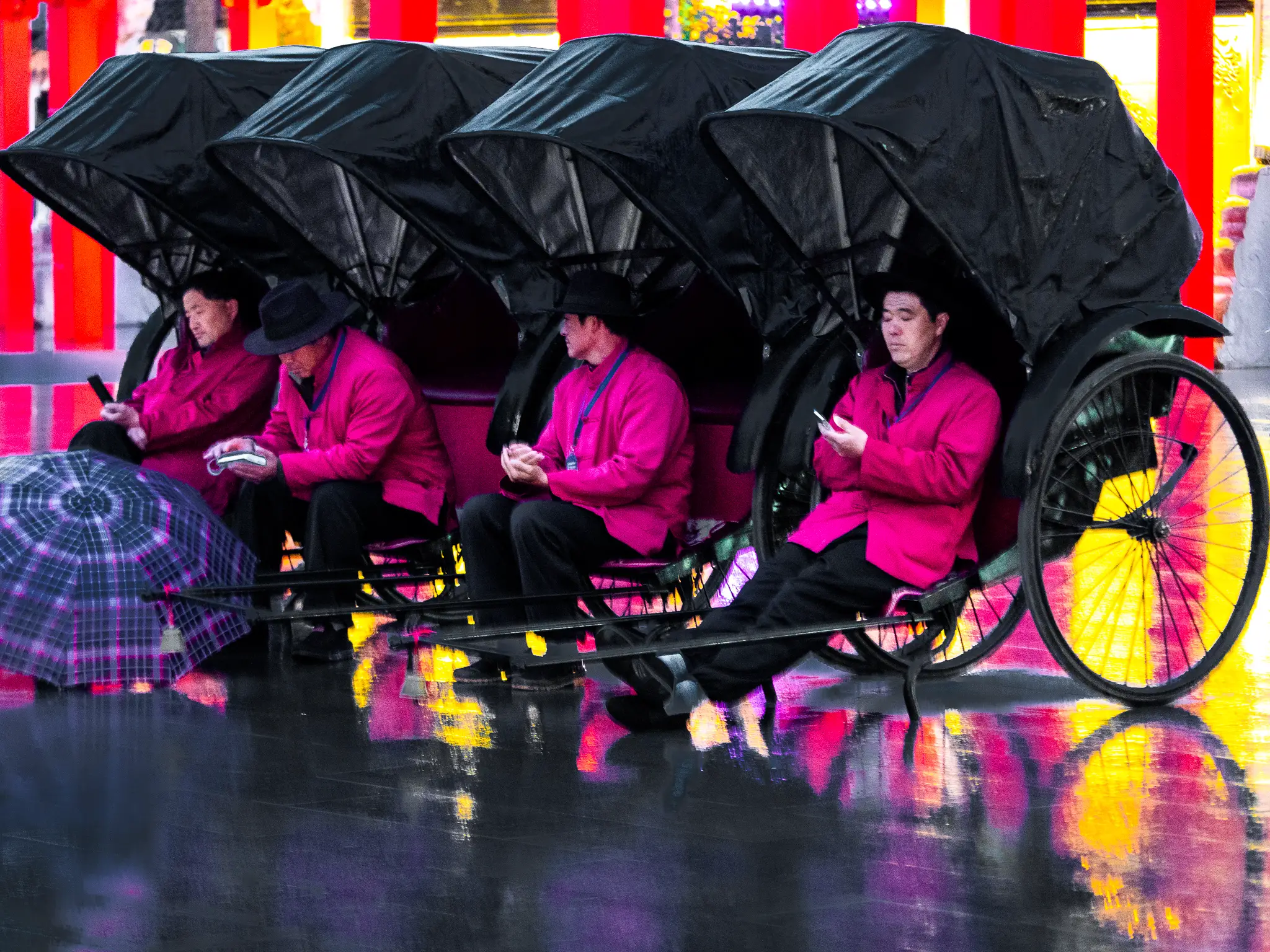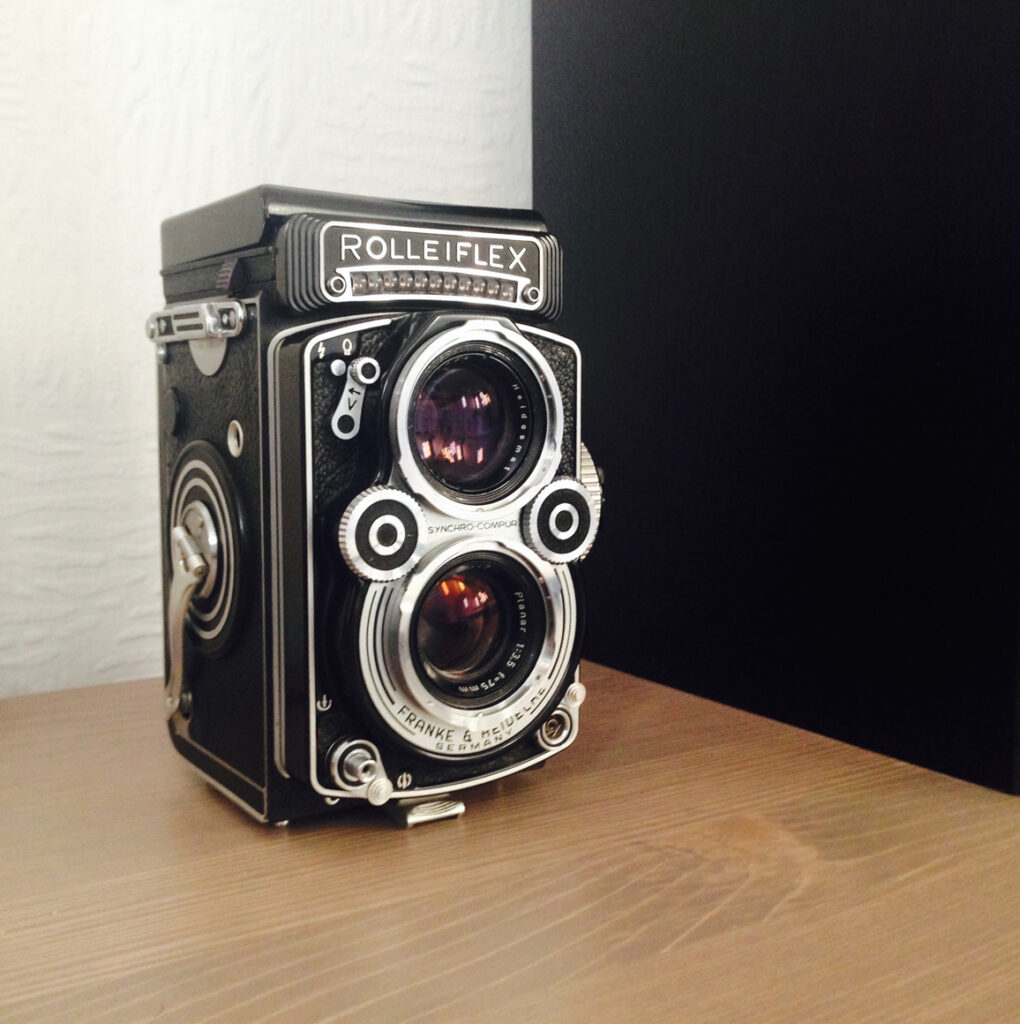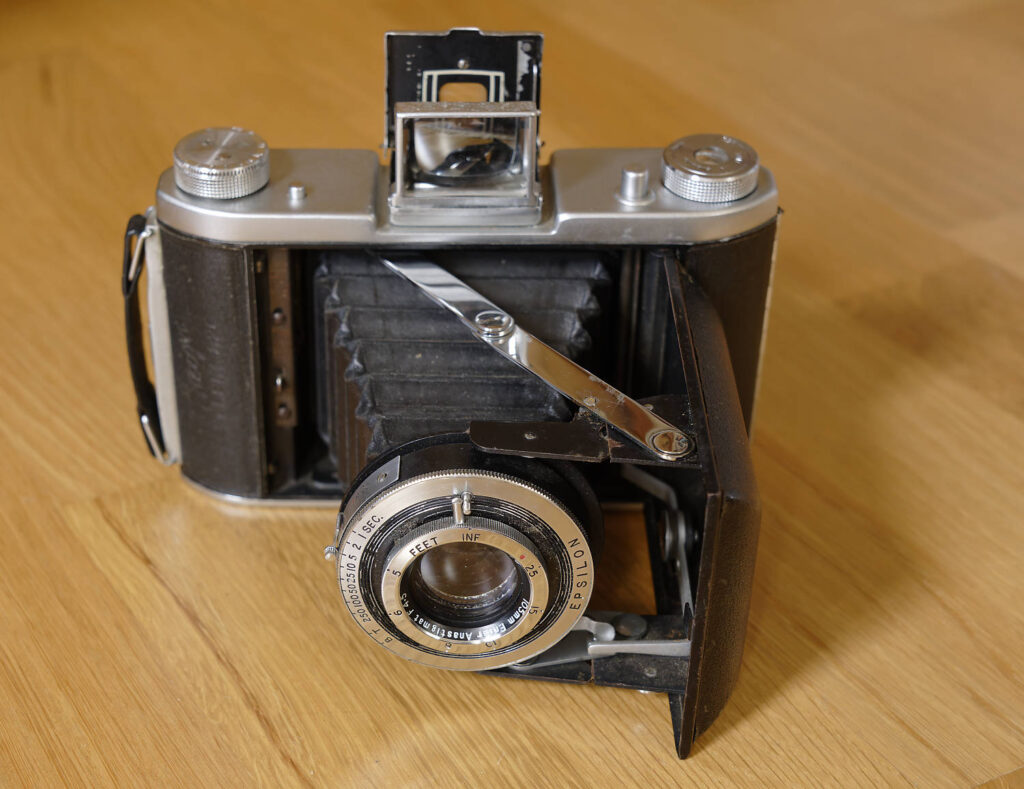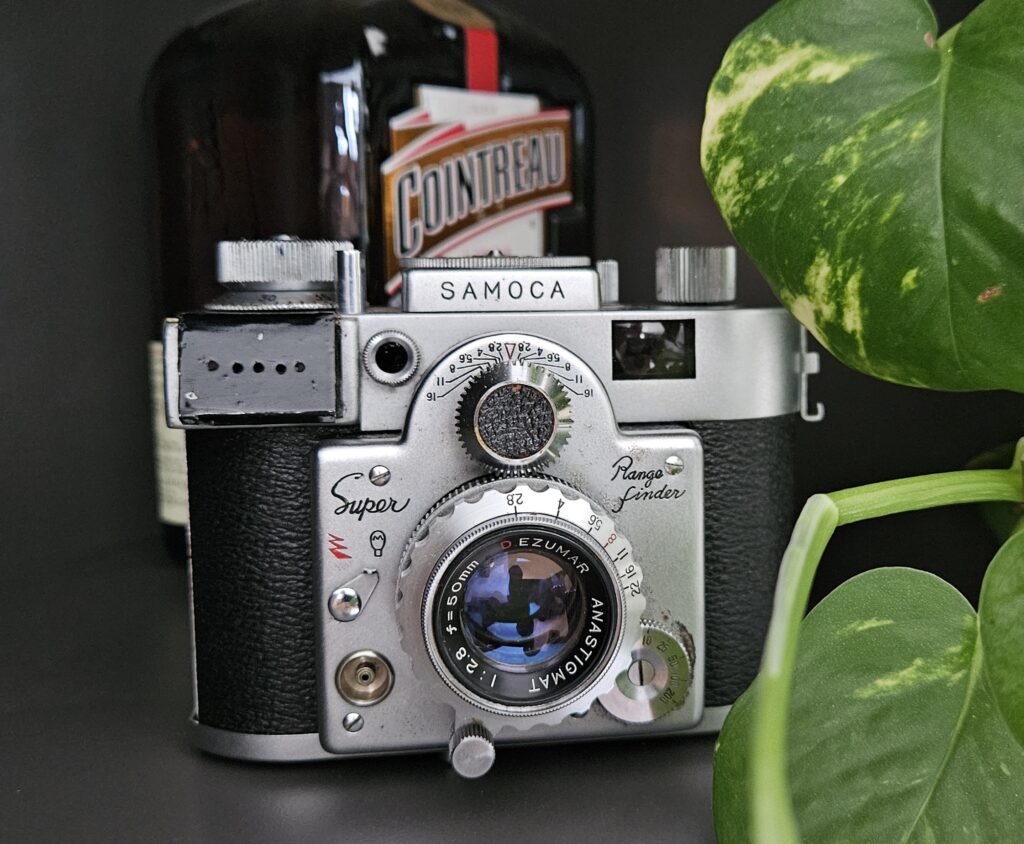If anyone had doubts about it, the comparison of digital photography and film photography presents a compelling argument for the norms of private property and the capitalist marketplace. Simply put, because I incur negligible incremental cost taking an additional digital photo but significant real cost taking each film photo, I am careless about the former and careful about the latter. A price is only a proxy for value. But it serves its function.
I paid approximately the same for my digital camera (body only), already obsolete, as I did for my film camera (with two lenses), long since discontinued. You could argue that producing images by the two means is fiscally similar, depending on how much use you expect from each kit. Amortizing the equipment offsets the cost of film and developing; the digital costs are fixed if you resist the acquisition of more glass, except for replacement memory cards. So you can run a straightforward calculation to determine the tipping point when the next roll will put the aggregate cost of film over that of digital. The more you shoot in digital, the less each picture; the more you shoot on film, the opposite. Since the original expenditures are easily forgotten, while each order of Ilford HP5 and each cartridge dropped off at the lab for processing is a reminder of another charge for this hobby, film appears expensive if not extravagant. Hardcopy prints add more (though digital can be rendered materially too).
That is not necessarily “a bad thing” to be vernacular. It imposes self discipline. I think nothing of burst shooting in digital, or the manual equivalent of taking a dozen snapshots that are virtually identical. I carry an extra battery, and in RAW I can approach the limits of file space. I hesitate before pressing the shutter button again on film, unless I am sure I botched the framing or exposure or the autofocus misfired. Even at my most prolific, I do not reload more than once in a session.
The behavior is a direct result of utilitarian forces even if not consciously analyzed. If the universe imposed a penalty for every discarded digital file or made film free, I am sure all of us would adapt to the new incentive scheme. Adam Smith was right. The invisible hand is at work.
The lesson to be learned about life is that we, or at least I, do not appreciate as much what I have been given as what I have had to bargain for. I earn my film photos. I have to be able to afford it. That means repeatedly. Each and every satisfying click and whirr is a few pennies, which must be in the pocket. I am automatically averse to waste.
That also is why health insurance plans require co-pays. Even a modest fee alters choices. Likewise, event planners charge a nominal amount to join the fun. An RSVP with no nonrefundable deposit is painless to walk away from. Someone who owns property will invest in it and maintain it. Somebody who does not have that stake or inherited it without exertion might or might not.
The outcome is obvious to me. My film photos are better. I don’t mean objectively. I mean personally. The digital photos are sharper, if that is the desired effect. They span a wider range of lighting conditions and other circumstances such as inclement weather. The film photos are composed more thoughtfully, and it shows. The proportion of keepers is a magnitude more. I like the analog me. To be contemplative is ethically preferable to treating everything as a commodity. Digital is disposable. It suggests misleadingly that our lives are as well.
Over Christmas, for example, I shot more than 1000 photos on digital, and I uploaded maybe a quarter of the total to social media. I’m known among the friends of my nieces and nephews for the big head pictures from family vacations. But I shot only a roll on film. I tried a new medium format camera, film — I composed two frames, manually focused, and await, nervously, the developed negatives. I like my digital photos as a finished product. But I derived pleasure from the film photos as a creative process.
Photography is not intrinsically ideological. Yet observing how photographers respond to the reality that the art involves cost offers insights into human nature. No doubt greater sacrifice would provoke greater consideration. Perhaps it also is the source of inspiration.
Share this post:









Comments
Michael Kay on Film Photography Shows Why Private Property and Capitalist Markets Work Well – By Frank H. Wu
Comment posted: 12/01/2019
I shoot film and digital. I like film cameras more, but digital cameras produce better images. Because they are easier to use, more people get better results. It can be whatever we make it. I'd add that film can produce much better image quality then the images we often see shown on this blog (and others like it), as far too many people have cameras that aren't set up properly, or they don't focus properly, or they don't obtain good quality scans - all of which are possible with more care and attention.
Finally, we don't have to change our digital cameras every 2 years to have the latest thing. They have already exceeded the point of sufficiency.
George Appletree on Film Photography Shows Why Private Property and Capitalist Markets Work Well – By Frank H. Wu
Comment posted: 12/01/2019
Yes, there was also Steve Jobs but my point is that enjoying taking photos is a good thing, even in the case you're communist. And you can do it either with digital or film in the same manner.
Andrew Bearman on Film Photography Shows Why Private Property and Capitalist Markets Work Well – By Frank H. Wu
Comment posted: 12/01/2019
The price of film is not analogous to healthcare co-pays. Photo gear purchase decisions are not the same as paying for medicine or hip replacements. Are you less likely to take your meds if they are free?
The argument that film process costs are similar to digital no longer holds true (thank you, market forces). Like Michael Kay mentions, you can now buy older, much less expensive digital cameras that exceed film's resolution. Many phones today can.
Not everyone who owns property maintains it. People don't always act in their best economic interests. (See also: GAS and my closet full of film cameras)
Nothing wrong with loving the slow careful process of film-making art. But rationalizing its costs as supporting the "norms of private property and the capitalist marketplace"? Do you really need economic incentives to be less careless with your digital photography? Pay more attention to how you work. Apply the slow-go methods of your film work to your digital. You can do that without spending a dime.
Comment posted: 12/01/2019
Luca on Film Photography Shows Why Private Property and Capitalist Markets Work Well – By Frank H. Wu
Comment posted: 12/01/2019
Neil on Film Photography Shows Why Private Property and Capitalist Markets Work Well – By Frank H. Wu
Comment posted: 12/01/2019
Mark Kronquist on Film Photography Shows Why Private Property and Capitalist Markets Work Well – By Frank H. Wu
Comment posted: 13/01/2019
Studio closing? What's in their freezer? Experiment! Enjoy and shoot
Kodachromeguy on Film Photography Shows Why Private Property and Capitalist Markets Work Well – By Frank H. Wu
Comment posted: 13/01/2019
As for me, I prefer the way my black and white film pictures look for the type of scenes I photograph (old architecture, urban decay, abandoned factories). I use both Fuji digital and various film cameras (of different formats), but the film ones give me more reward, and I prefer the output. The cost is not really a factor as I am not taking hundreds or thousands of photographs. But still, I am more careful and try to make each film frame count. For me, it is more fun and I prefer the end result.
jeremy north on Film Photography Shows Why Private Property and Capitalist Markets Work Well – By Frank H. Wu
Comment posted: 13/01/2019
Daniel Castelli on Film Photography Shows Why Private Property and Capitalist Markets Work Well – By Frank H. Wu
Comment posted: 13/01/2019
Comment posted: 13/01/2019
JamesW on Film Photography Shows Why Private Property and Capitalist Markets Work Well – By Frank H. Wu
Comment posted: 14/01/2019
Arthur Fangou on Film Photography Shows Why Private Property and Capitalist Markets Work Well – By Frank H. Wu
Comment posted: 18/01/2019
Chill out & live a little mate...you can't take those cameras with you when you leave this world.
Cecil on Film Photography Shows Why Private Property and Capitalist Markets Work Well – By Frank H. Wu
Comment posted: 23/06/2020
This is so absurd that it is not even wrong
Greg L on Film Photography Shows Why Private Property and Capitalist Markets Work Well – By Frank H. Wu
Comment posted: 28/12/2021
Does shooting film make any economic sense? No. But I do it anyway and enjoy both the process (I get to operate some exquisite equipment (F6, M3), it forces me to think more about exposure) and the result ( I get to hold a beautiful mounted slide in my hand). All worth the cost of a dozen or so rolls of film a year in my humble opinion. I suspect most readers here feel the same way.
Jerry Scoby on Film Photography Shows Why Private Property and Capitalist Markets Work Well – By Frank H. Wu
Comment posted: 10/01/2023